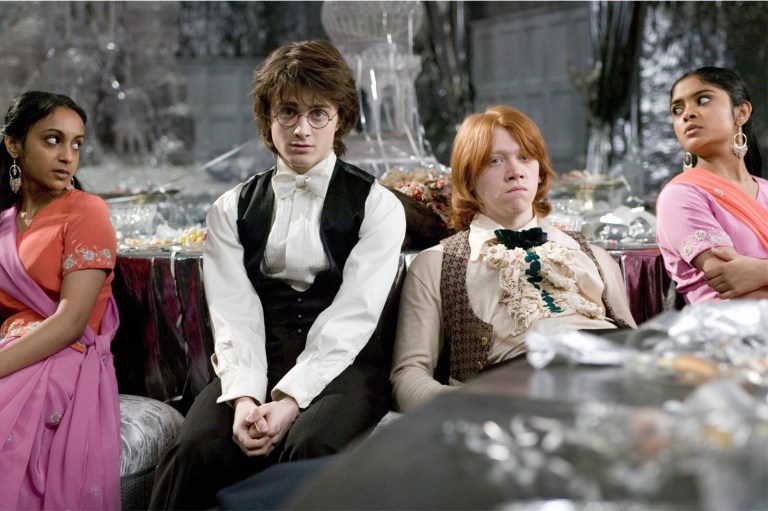
The Exes Whose Numbers We Don’t Delete
They do not reach out. We do not reach out. The numbers just take up space, trophies of successful nights out and vague reminders of hangovers we have long since gotten over.
By ![]() Ella Ceron
Ella Ceron
They are there, whether or not you’re aware of them. In fact, you’re probably not aware of them — they have no bearing on you anymore. They’re the numbers of the dates that didn’t turn into anything more, the offers for drinks that we bailed on last minute, the exes and maybes and classmates and coworkers we had crushes on. They’re just there if you look for them. And we never do look for them. But if they’re hovering just out of grasp, why keep them around at all?
I came across my own roster while rabidly deleting apps and data and needless games from my phone in the hopes of making the necessary 5.8 gigabytes of room for the newest iOS update. As I parsed through years of photos and music and message threads loaded with gifs and pictures, I noticed them — the Numbers of Exes (and almosts) Past.
There was Chris, no last name, who initially stuck out at me because I am the kind of person who needs last names in my phone. And then I found Josh and Peter Penny Farthing, two guys I must have met at the bar of the same name God knows how many years ago when I actually went there. John Marine’s entry was the sole memento of when Fleet Week in New York was more fun than sad (when you turn 23, you suddenly begin to realize that all the men in uniform that flood the city in May are actually little more than boys in uniform and it becomes instantly sobering). On and on the list went, men whose faces I did not remember and whose text threads (if we exchanged any at all) had long since been deleted. I didn’t even remember exchanging my number with some of these names, though I suppose I must have at some point because there they were, taking up just as much extra space as former coworkers from old jobs and the classmates with whom I probably worked on a project in college once.
And of course, there were the real exes, or at least the almost-boyfriends I had either fizzled out on or with whom I had spectacularly crashed and burned. Some had numbers relegated to “DO NOT PICK UP” — there was a cluster of five of these seemingly identical contacts, differentiated only by the digits associated with them. Some were exes I am still friends with on Facebook, and though I know there are a few whose numbers I angrily deleted in a fit of self-preservation (I am always the kind of person who caves and texts back first) the vast majority were still there.
I have had an iPhone since 2008. And because Apple technology has always been able to transfer your data from phone to platform to new phone, that is six years’ worth of numbers I have either been too lazy or too sentimental to delete.
But why do we keep these numbers around? It takes little to no time if you were diligent enough to delete numbers you’ve amassed say, once a month or so. But there are also some people whose names we hover over sometimes, wondering where they are and what they’re doing with their lives and do they think of us and are our numbers still in their phones? We pause, we reflect, we reminisce. If we’re drunk or bold or lonely enough, if we’re not afraid of looking too desperate, sometimes we reach out. Sometimes we say hi. Most frequently, though, we don’t.
Maybe we like to hold out hope for some of these people, whose memories and conversations become fuzzier with years and phone updates pass. That one day, the person with whom you shared a class and thought was cute will wake up and realize the one for them was sitting two seats away however many years ago. Or that somebody is going to text us one day and say they passed that bar and remembered meeting you and would you like to get a drink sometime. It’s the perfect meet-cute, the kind of thing Hollywood rom-coms would dream up — but of course, we are not the Kate Hudsons and Chris Evanses of the world, and life does not work in a scripted fashion.
They do not reach out. We do not reach out. The numbers just take up space, trophies of successful nights out and vague reminders of hangovers we have long since gotten over.
In her July 2013 article for New York Magazine, “All My Exes Live In Texts,” Maureen O’Connor ruminated on the lost ability to get away from all the exes — the bona fide relationships, the maybes, the flirtationships, the one night stands, all of them. There are, of course, auxiliary apps that block them from your online history, but as everyone knows, once something is online, it is out there forever.
There was also a time, I am told, when staying in touch was difficult. Exes were characters from a foreclosed past, symbols from former and forgone lives. Now they are part of the permanent present. I was a college freshman when Facebook launched. All my exes live online, and so do their exes, and so do their exes, too. I carry the population of a metaphorical Texas in a cell phone on my person at all times. Etiquette can’t keep up with us—not that we would honor it anyway—so ex relationships run on lust and impulse and nosiness and envy alternating with fantasy. It’s a dozen soap operas playing at the same time on a dozen different screens, and you are the star of them all. It’s both as thrilling and as sickening as it sounds.
I remember being 13 years old — a time when cell phones were rudimentary Nokias with interchangeable faceplates and Snake was the most advanced game available — and memorizing my then-boyfriend’s number. We called each other every day, we actually talked on the phone; it was only natural that eventually, I’d have those seven digits (and his mother’s voice, the intermediary between my landline and his) carved into my adolescent brain. (My mother can still recall the prefix for her first house phone — back when she was a child and phones began with letters instead of numbers. There’s always a phone number or a house address that sticks out in our memories, for whatever reason.) But now, we don’t have numbers memorized. If you forced me to recite my roommate’s number from memory, I wouldn’t be able to at all — and she is a girl with whom I have lived for two years, exchange texts every day, and am good friends. I’m more likely to remember someone’s Twitter handle than I am their last name, and refer to them as such in serious company. I am friends with some exes, and we follow each other on social media. Two recently got married, and I sent the requisite Facebook congratulations and liked the customary amount of reception photos. We live in a world where the actual digits themselves are obsolete.
There are so many other ways to keep in touch with people now, that a phone number seems like a mere formality. A friend once swapped Instagram handles with a guy she met at a bar. She said it was to remember if he was cute or not after the beer goggles wore off, but she also is on the app more than any other, so it makes sense to reach her there. The next guy who asked for her contact information, however, got a cell number swap. “I’ll delete it when he leaves,” she said. I’m not all that sure she ever did.
So what makes these numbers so special? Are they the proverbial notches on a digital bedpost? Once we’ve systematically gotten over asking one another “what your number” is, will we move onto all the could have, would have, might have been love connections we still keep just that far out of reach? Or are we hoping that one day, one of them reaches out, we grab on, make up for lost time and ride into a sunset? I don’t know. I suspect, however, that maybe, the deletion of the entry — and indeed, it’s a red button you have to hunt for way at the bottom of a very long scroll that seems to ask you if you’re sure you want to do this, if you’re absolutely sure, do you really want to — seems so final, so definite. Crossing off another one on our list of possibilities, making that pool for potential soul mates that much smaller, one by one by 212-555-1111. And if we don’t like anything in this world, it’s thinking that we have diminished potential, and fewer choices. We always want choices, and deleting exes and crushes from your phone is very much the final slammed door.
They could, of course, text us, and we could ask whose number this is and play it off like we got a new phone and our numbers didn’t transfer, but of course, numbers transfer these days, and of course, they won’t text us. That will be it. Deleting a number is very much like a goodbye.
Or maybe we’re just waiting for someone to invent an app that deletes numbers you haven’t used in a year or more. Maybe it’s just more inconvenient than anything else. Maybe storing everything in our phone means that we have the ability to store both everything — and things that mean nothing at all. And if you have that gigabyte space, well, why wouldn’t you? At least until you have to make room for the newest version of Temple Run. ![]()











